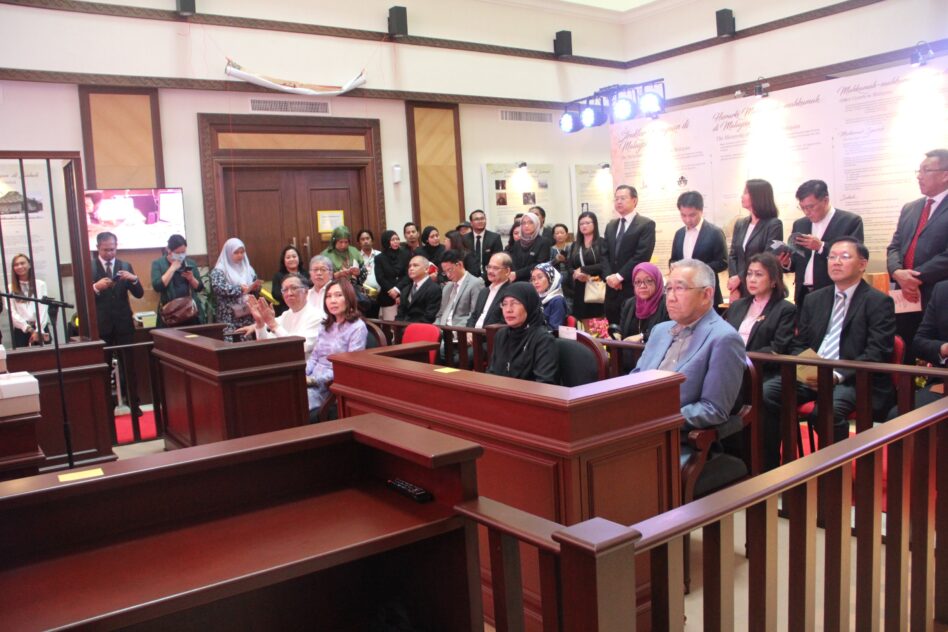LAW is a reading subject. That’s why we read law – not learn or study law. In law exams in England, examiners first mark the English language, next they look for evidence of wide reading, and finally mark for law. There are no right or wrong answers in law exams.
Anyone who has passion for the discipline can read law.
The best way to read law, according to the University of London (UoL) in its law module, starts with reading the constitution by going through statues, case laws, media reports on court cases, attend court and Parliament, examiner’s reports on law exams, get a mentor, and write commentary and analysis pieces on law as done by jurists (legal scholars).
UoL cautions that “it’s not possible for anyone to know law”. “Law, ultimately, is the power of language.” It’s about the nature of human relationships, notably between state and a person; between state and individuals; and between individuals.
The Bachelor in Law (LLB), according to UoL, isn’t about skills needed for the courtroom. “It’s an academic programme and only suitable for teaching.”
The UoL disclosed that it would never agree that only those with LLB and the English Bar be admitted to the High Court as advocates and solicitors after going through chambering at a law practice.
Law, in fact, does not exist. It only exists because we created it.
The constitution, for example, isn’t law but being based on the ultimate political documents, setting forth the governing institutions of state, it has force of law and emerges as the supreme law of the land.
The rule of law, another example, isn’t a legal term but political.
In the rule of law, the basis of the constitution, there’s greater emphasis on the spirit of the law albeit read with the letter of the law. This is where most lawyers in Malaysia fall apart. They can’t fathom the spirit of the law, constitutional law and jurisprudence.
They fall back on the letter of the law only – which isn’t law at all – and bulldoze their way through the system by resorting to technicalities and other elements in the “department of dirty tricks”. The hands of the court may be tied if the parties in dispute on issues in conflict are equally “dua kali lima” (hopeless).
Beginning reforms
Any reforms in law education must begin with bringing back the English language in court in Malaya. English remains the language of the court in the Borneo Territories. The Malaysia Agreement 1963 (MA63), the basis for the Equal Partnership of Sabah, Sarawak and Malaya in Malaysia, was drafted in the English language.
We know from history that the first language of the Federal Constitution is English which has more than a million words, a billion if extended words are included. The Bahasa Malaysia version which followed much later was mere translation.
I believe, to the best of my knowledge, that the Bahasa Malaysia translation isn’t the valid version in law.
The High Court of Malaya can declare – with reference to the Federal Court – on a point of law on this matter. I hope that in the interest of justice, not only being done but being seen done, the honourable court would not degenerate into politics on the Bahasa Malaysia issue.
As it is, there have been cases of non-Malay lawyers allegedly Google translate submissions in English into Bahasa Malaysia. The Bahasa Malaysia version is marked “Original” – and is neither corrected by the lawyers nor even read – while the English original is marked “Translation”.
Obviously, the court cannot look at the Bahasa Malaysia submission because the Google language is atrocious. It looks at the submission in English. This is a hypocritical situation created by rotten politics.
Unknown to lawyers, e-filing in Malaya has introduced a new dimension in court. Titles in the system are only in Bahasa Malaysia. The artificial intelligence(AI) in e-filing will accept only Bahasa Malaysia titles.
If the content is in English, the AI being “stupid” won’t know as long as the title is in Bahasa Malaysia. The AI will not reject e-filing under Bahasa Malaysia title but carrying content in the English language.

National language
If court filing in Malaya should continue to be in the national language, I would like to point out that Bahasa Malaysia has since replaced Bahasa Melayu in official use, in schools and the media.
Bahasa Malaysia is not the Bahasa Kebangsaan. Also, Bahasa Malaysia and Bahasa Indonesia cannot be passed off as Bahasa Melayu.
The High Court of Malaya can declare with reference to the Federal Court on a point of law on this matter. Under Article 152 of the Federal Constitution, Bahasa Melayu – Johor Riau-Lingga version as spoken – is the national language in Malaysia.
As the current debate between Indonesia and Malaysia shows, Bahasa Melayu (20,000 words according to Dewan Bahasa dan Pustaka [DBP]), Bahasa Malaysia (40,000 words according to Kamus Dewan) and Bahasa Indonesia (more words than Bahasa Malaysia) are not one and the same language.
Bahasa Melayu, not originated by a race, is the basis of both Bahasa Malaysia and Bahasa Indonesia.
New Bahasa Melayu
Bahasa Melayu comes from a Cambodian dialect. Superimposed on this were words from Tamil, Sanskrit and Pali. Buddhist scriptures are in Pali, a Sanskrit dialect. Sanskrit is used in Hindu temples.
Bahasa Melayu became the lingua franca of the Malay Archipelago during the Hindu and Buddhist era. The original script was Indian.
Both Bahasa Malaysia and Bahasa Indonesia have words from other local languages and dialects and English. In addition, Bahasa Indonesia has Dutch words.
The local languages and dialects in Bahasa Malaysia and Bahasa Indonesia are not completely the same. In the Philippines, Tagalog is the basis of Filipino. Superimposed on this are words from other local languages and dialects, Spanish and English.
Malaysia, Indonesia and the Philippines can come together to create a new language for the Archipelago by merging Bahasa Malaysia, Bahasa Indonesia and Filipino. Call it Bahasa Melayu Baru after the Malay Archipelago. The terms Bahasa Malaysia, Bahasa Indonesia and Filipino should thereafter be dropped.
Talent pool
Patently, there must be reforms in law education that will widen the talent pool beyond those holding academic – again, only suitable for teaching – law degrees which cannot by its very nature include court room skills.
Briefly, Malaysia should take the cue from England and Wales on recent reforms in law education. Advocates and solicitors have been separated into different disciplines. They have their own pathways.
The talent pool has been widened by including non-law degree holders. They can become lawyers after going through a six months to 18 months law conversion course. Bar and chambering are pre-requisites before being admitted to the High Court as advocates.
Solicitors don’t have to be admitted to the High Court. They prepare cases at a law practice. – April 15, 2022
Longtime Borneo watcher Joe Fernandez keeps a keen eye on Malaysia as a legal scholar (jurist).
The views expressed are solely of the author and do not necessarily reflect those of Focus Malaysia.










